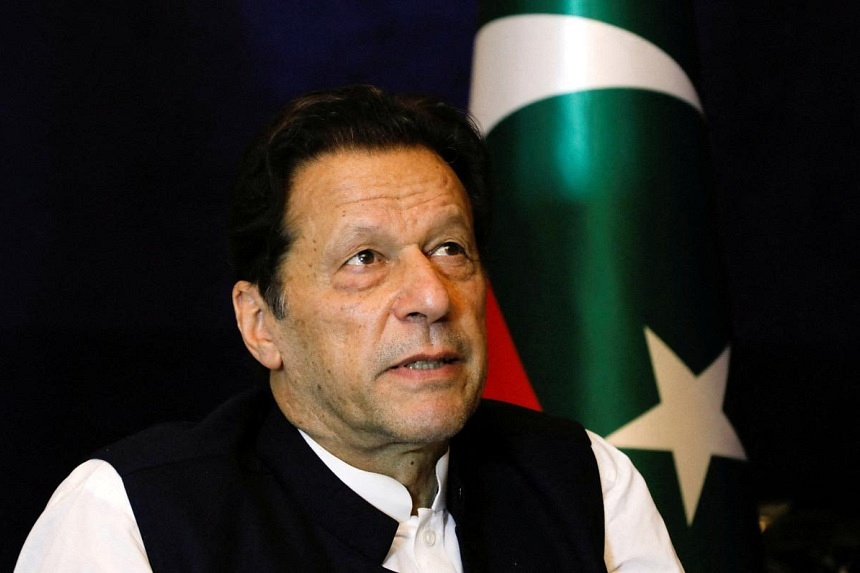
Updated
Nov 26, 2024, 10:34 PM
Published
Nov 26, 2024, 10:19 PM
BEIJING – United States President-elect Donald Trump appeared to fire his first salvo on China on Nov 26, saying that he will impose an additional 10 per cent tariff on imported Chinese goods on his first day in office.
It appears to be a political gambit to use tariffs as a bargaining chip, with Trump adding that the hike is related to China not doing enough to stem the flow of drugs – specifically fentanyl – to the US.
Mr Stephen Olson, a visiting fellow at the ISEAS – Yusof Ishak Institute in Singapore, said Trump prides himself on being unpredictable, so it is difficult to be certain of his strategy.
“But this is very likely an opening salvo,” he noted, adding that Trump’s goal through such tariff actions could be to cut some kind of trade deal that could also include Chinese commitments on other issues, such as drug control.
Observers, including Chinese scholars, had warned about the likelihood of Trump using tariffs in such a transactional way. During Trump’s first presidency between 2017 and 2021, such tit-for-tat moves were made on goods such as Chinese solar panels and steel, and American soya beans and aeroplanes.
In the meantime – especially with US President Joe Biden deciding not to lift these import taxes – Chinese sellers have been diversifying their export destinations, and 10 per cent could be a margin that they could still absorb.
But the greater fear is that this is merely the beginning of a series of escalating actions that would lead to yet another economic confrontation.
The first trade war resulted in tariffs on some US$550 billion (S$728 billion) of Chinese goods and US$185 billion of US goods. It ended with a trade deal in 2020, but a Chinese pledge to buy an additional US$200 billion worth of US exports never materialised.
In a Truth Social post on Nov 26, Trump said he had “many talks” with China about fentanyl being sent to the US, but to no avail.
Abuse of the prescription drug used to treat severe pain has caused thousands of deaths in the US each year. The US government has said that most illegal fentanyl is trafficked from Mexico using chemicals from China.
In response, a Chinese Foreign Ministry spokesman maintained that China has one of the world’s strictest anti-drug policies, and has conducted “extensive” cooperation with the US on this issue. The Chinese embassy in Washington added: “Nobody wins in a tariff or trade war.”
During his election campaign, Trump pledged a blanket 60 per cent additional tariff on Chinese goods. It is unclear how he derived the figure, but observers have noted that the figure would be roughly consistent with the average tariff level if the US had revoked China’s most favoured nation status.
China was granted this status in 2000 as it prepared for entry into the World Trade Organisation, allowing it to benefit from the same trade terms as US allies. Only four countries currently do not enjoy such a status with the US: Russia, Belarus, North Korea and Cuba.
The US-China Economic and Security Review Commission in its annual report released last week recommended that China’s status be revoked – the first time the US bipartisan advisory body has explicitly called for such a move.
Mr Olson, who studies international trade, said that revocation – if it comes to that – would “send a very strong signal that the US has concluded that deep economic integration with China was a mistake that now needs to be corrected”.
The National University of Singapore’s Associate Professor Chong Ja Ian, who specialises in Chinese foreign policy, cautioned that nothing is yet definite as Trump does not take office until January.
Other possible motivations for the latest move? “Perhaps it is to see how the PRC will react as Trump and his team plan out their strategy,” he said, using China’s official name, the People’s Republic of China.
Trump could yet hold back because a tariff hike could end up hurting US consumers, with the US still the top export market for China.
Mr Nick Marro, the principal economist for Asia and lead for global trade at the Economist Intelligence Unit, noted that senior US officials have cautioned that the battle on inflation is not over, and tariff imposition would risk reigniting those price pressures.
“It’s still highly unlikely at this point, but the economic – and political – costs of these tariffs could prompt a rethink by the Trump team come January. But let’s not hold our breath,” he wrote in a note on Nov 26.
A key question remains over Trump’s Cabinet picks, with potential appointees such as Mr Marco Rubio for secretary of state viewed as China hawks. But others are seen as being more moderate, especially on the economic front.
Prof Chong said that such differences in the upcoming administration could also lead to volatility in US-China relations. He noted that Mr Rubio has different positions on China than Mr Elon Musk, who has significant investments in China and has met the country’s top leaders multiple times.
“These differences will have to be worked out. There could be some variation in policy as that takes place. The resulting shifts could well affect US-PRC ties.”

 By The Straits Times | Created at 2024-11-26 14:34:55 | Updated at 2024-11-26 16:31:12
2 hours ago
By The Straits Times | Created at 2024-11-26 14:34:55 | Updated at 2024-11-26 16:31:12
2 hours ago








